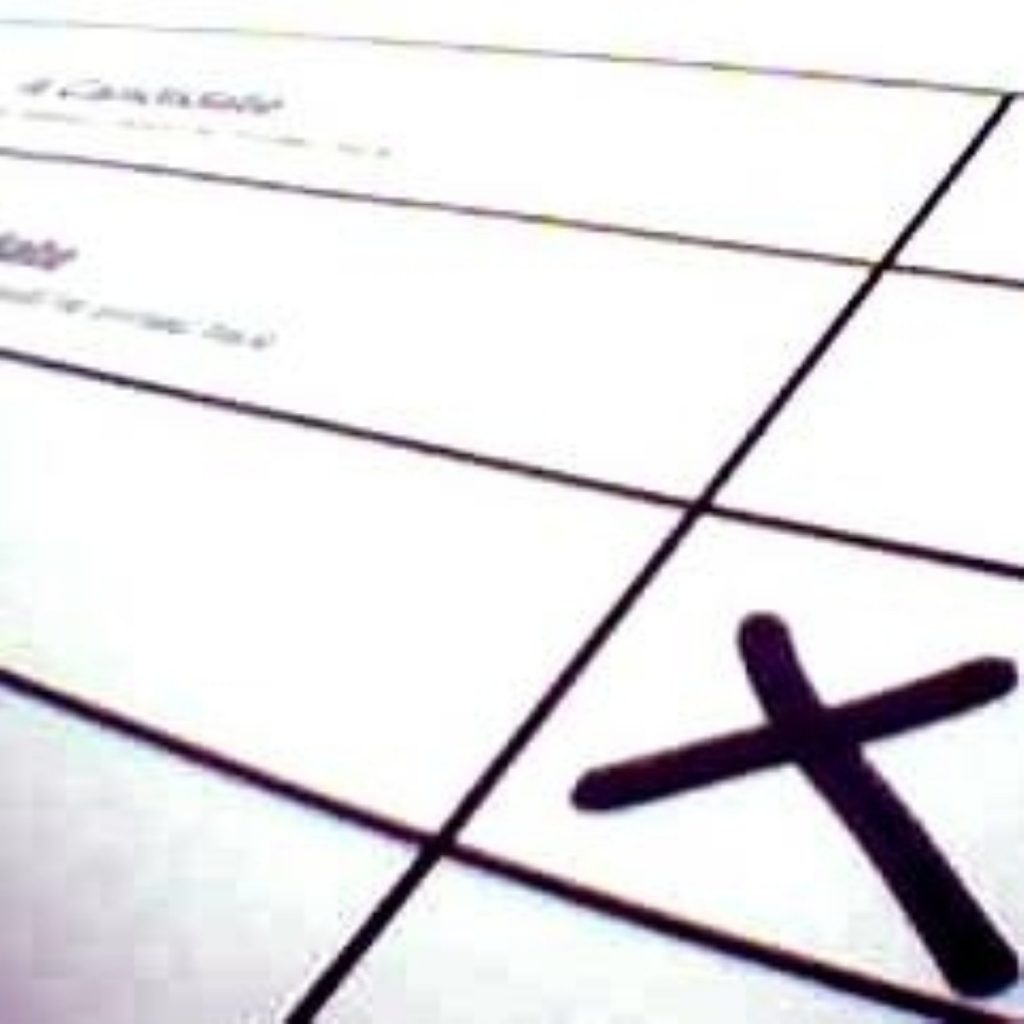Election watchdog ‘lacks courage and competence’
The row over party funding and concerns about voter fraud are largely down to a “lack of courage, competence and leadership” by the Electoral Commission, a new report warns.
After an 11-month investigation, the committee on standards in public life today called for a radical overhaul of the elections watchdog to allow it to focus on its two core functions – to ensure public confidence in elections and the party system.
However, while commission chairman Sam Younger acknowledged the need for reform, he rejected the accusation that the watchdog had lacked courage and leadership, saying its work had brought much-needed transparency to the way parties were funded.
A far-reaching review of party funding is currently being carried out following the cash-for-peerages row, where it emerged that political parties were accepting secret loans from wealthy businessmen – many of whom went on to be nominated for the House of Lords.


The law was hastily changed last autumn to close the loophole that made this possible, but today’s report warned a “passive approach” by the Electoral Commission and uncertainty over its regulatory role had been a big factor in the scandal.
“Guidance was not provided, even when the issue was raised during the 2005 general election, and no subsequent investigation or review as part of their statutory report on the election was undertaken,” said committee chairman Alistair Graham.
But Mr Younger said: “Before the Electoral Commission existed, little was known about where the political parties got their money, or how they spent it. Today the opposite is true.”
He said the watchdog had acted where there was evidence that rules had been breached, but welcomed the committee’s recommendation of new powers to fine guilty parties.
The committee also looked at the increase in voter fraud since postal voting was introduced in 2001. Police have reported 342 cases of electoral malpractice to the Crown Prosecution Service (CPS), and there have been a number of convictions for vote-rigging.
Sir Alistair said that in this area, the Electoral Commission “should have shown greater focus and courage in alerting the risk to the integrity of the electoral process” from the introduction of postal voting, principally the lack of safeguards against fraud.
“Through a combination of deficiencies in its current mandate, that is too weak in some areas and too broad in others, combined with a lack of courage, competence and leadership in its regulatory and advisory approach, the commission has not successfully performed these core duties,” the report says.
“This has contributed to a loss of confidence by the public and political parties in the integrity of both the electoral process, and in political party funding.”
It calls for the watchdog to drop its work on changes to constituency boundaries, election policy and increasing participation in democracy, freeing up money from its £27 million annual budget to toughen up its regulatory role.
However, Sir Alistair notes these changes, which include greater accountability of the commission to parliament, would only work if government, MPs and political parties took note of the watchdog’s advice.
This was particularly true on the question of individual voter registration, which the commission had been arguing since 2003 was required to combat fraud in postal votes. Mr Younger welcomed this support.
On the crucial issue of party funding, Sir Alistair warned that parties also had a duty to comply not just with the letter of the law, but also the spirit. He said: “Public scepticism is justified if parties are seen to avoid or circumvent the principle of transparency.”









